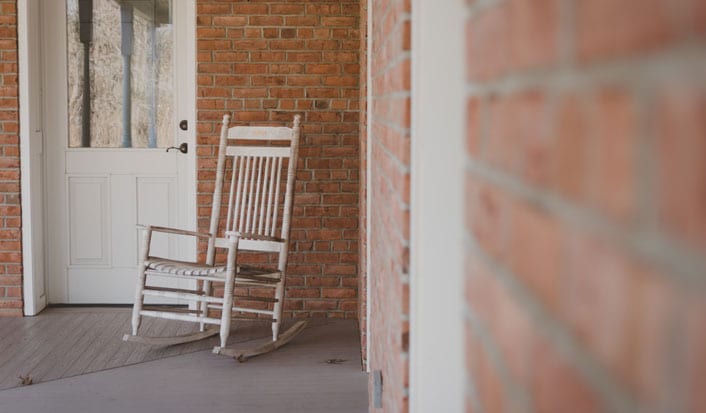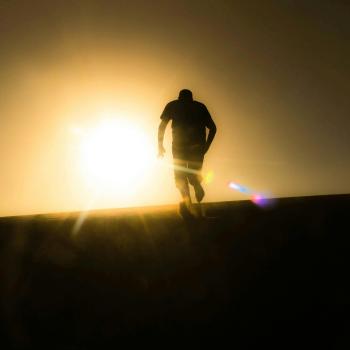
When I’m asked who my favorite character from all my novels is, I always say it’s Obadiah Abernathy in Dominion, who played baseball in the old Negro leagues. He modeled dignity, grace, wisdom, and humor.
My spiritual inspiration for Obadiah was my friend John Perkins, now 90 years old, the son of a Mississippi sharecropper and one of my heroes. John awakened me to racial justice with his magnificent book Let Justice Roll Down, and who I got to know when we spoke together at a conference in the 80’s. Later I spend time with John in Mississippi while researching Dominion. I tell some of this story here.
Three years ago John Perkins asked me to write the foreword for his life story and vision, Dream with Me: Race, Love, and the Struggle We Must Win. When I wrote Obadiah’s dialogue, I often asked myself, What would John say? In real life, I sometimes ask myself the same question, including when I write about racial justice.
While I modeled Obadiah Abernathy after the heart and love of John Perkins, my sports inspiration for Obadiah was Buck O’Neill in the old Negro leagues. A modern man of reconciliation, he was born in 1911 and died in 2005, one month shy of age 95. In this video, Buck O’Neill is speaking for 50 minutes when he was in his nineties. Here you see the winsomeness of Obadiah Abernathy, just as in John Perkins you see the same with great spiritual depth:
In this excerpt from my book, Obadiah talks to his family about church in the old days, and the Heaven that’s coming and won’t ever end.
The family sat around Dani’s big dining-room table, Obadiah at the head, Clarence and Geneva on one side of him, Keisha and Celeste on the other, with Jonah and Ty at the far end. Ty was there under protest. As usual, he wanted to be doing something with his friends.
Obadiah sat straight as his eighty-seven-year-old back would allow. As always, he chewed his food over and over, as if stretching it, savoring it, trying to draw extra nourishment. He ate like a man who hadn’t always had enough to eat. At Sunday dinner he held the family reins, and in the last year or so with Obadiah, you never knew where the conversation would go next.
“Fine message, fine message,” Obadiah said. “I like that Pastor Clancy.”
“So do I,” Geneva said. She passed Obadiah a big piece of huckleberry pie.
“Much obliged, Daughter. Looks wondrous. Looks wondrous.” After one long bite and lots of head shaking, he resumed his commentary. “Good chu’ch. I likes that chu’ch. Good chu’ch, isn’t it boys?” He eyeballed Jonah and Ty.
“Yes sir,” Jonah said.
Ty looked down and grunted, “Yeah.”
“Been to lots a churches in my day,” Obadiah said. “One time went with Cousin Jabal to a church in Louisiana. They put whites on one side and blacks on another. Then they had this big ol’ rope goin’ down the middle aisle, just to make sure no one forgot what color he was. Funny thing, pastor was preachin’ through Colossians, and the text was how race don’t matter and we’s all one in Christ Jesus.” He chuckled, eyes dancing. “I don’t know what more that pastor said. I just sat there thinkin’ about how we’re all one in Christ Jesus and lookin’ at that rope!”
Obadiah laughed long and hard, shaking his head. “You remember Jabal’s boy Rabe, don’t you Clarence?”
“Yeah, Daddy. He stayed with us a few weeks until…until the polin’.”
“What’s polin?” Jonah asked. Clarence glanced at his daddy as if to say, “You’re the one who brought it up.”
Obadiah sighed. “Polin’ was where people would get in their cars, drink enough beer to gets them up some courage, then drive down roads settin’ to whack blacks in the back of the head with two-by-fours. It happened to Rabe. Hurt him pretty bad.”
“Why are white people so mean, Grampy?” Celeste asked.
“They’re not mean, honey, not all of ’em, not even most of ’em. Just some of them, chile, just some of them.” He looked around the table. “Jabal always used to say, ‘Never trust a white man,’ and he said it more than ever after Rabe got poled. Well, Jabal was wrong. I told my chillens then and I’m tellin’ you all now. Never trust a man with bad morals and a weak character, that’s what Jabal should have said. Skin color don’t matter, ’cept to people with small brains. There’s good blacks and bad blacks. There’s good whites and bad whites. You can’t never tell a book by its cover. And you can’t never tell a man by his color.”
Obadiah measured the silence at the table before continuing. “The problem ain’t white folk. The problem’s just folk—black, white, or purple, it don’t matter. Bible calls it sin, and sinners is what we all is.” He seemed to be reaching for a story, and his eyes glowed when he found one.
“When I was a boy, my grandpappy on my daddy’s side was visitin’. It was a hot day and we was fishin’ down by a lake—prettiest little lake you ever seen. Well, Grandpappy, he took off his shirt. And I saw the marks all over his back. I came over and ran my finger over them. They was all healed, but you could still see the pain in his eyes. I asked him, ‘Who did this to you, Grandpappy?’ I knew he’d been a slave, but the stories never made much sense to me till I saw the marks.
“He said, ‘A cruel man did it to me. I’ve asked Jesus to forgive him. I hope he asked Jesus to forgive him too.’ See, he never said it was a white man. He said it was a cruel man. I never forgot that.”
Obadiah looked around the table, and Clarence could almost hear an abrupt gear change in his daddy’s head. “You know what’s missin’ in churches these days?” “What’s that, Daddy?” Clarence asked.
“The mourner’s bench. ’Member our old church in Puckett? They had a mourner’s bench. That was back in the days when you didn’t need no theologian to explain away the Bible. We just believed it. And tried to live by it. ’Member ol’ Reverend Charo, Clarence?”
“Yes, Daddy.”
“Now that was a preacher. Man had more points than a thornbush.” Obadiah smiled broadly, his white teeth looking like piano ivories. “The Reverend used to say from the pulpit in this big loud voice, ‘It’s no disgrace to be colored.’ Then he’d pause and lean forward and wink at us and whisper, ‘It’s just awfully inconvenient.’”
Obadiah laughed and laughed, mostly on his own, though Geneva managed a few chuckles herself.
“Sunday was the finest day of the week, I reckon. We’d leave behind those cotton fields, that ol’ ramshackle house, and come to the house of God. Without Sundays, we woulda shriveled up and died, worked ourselves to the grave ’fore we was fifty years ol’. We’d put on our Sunday best. Mama, she’d put wheat starch in my collar to glue down the threads on my one white shirt. I’d pick the trousers with the fewest holes. We’d walk the four miles to Sunday school, rain or shine. And we had fun walkin’. Ol’ Elijah and me, we was always cookin’ up mischief along the way.”
He looked right at Jonah and Ty and nodded, as an old man who’s never forgotten what it is to be young. Everyone’s eyes focused on Granddaddy. Frail as Obadiah’s body had become, his eyes were strong and he still carried the indomitable authority of a senior black man.
“Pastor served four churches, so he’d be there once a month. We’d take a break after Sunday school, then have a big service. Preacher go up there and say, ‘Remember your mama? How she used to hug you and tuck you in? But she gone now. Can’t tuck you in no more.’ And he’d carry on and on, till we was all snifflin’ and sobbin’. He’d keep remindin’ us of our grandmammies and all our kin that died until we was almost in a frenzy. Then he’d shout, ‘But someday you goin’ to see yo’ mama again. Some day you goin’ to heaven, if you loves Jesus, and there she be—arm’s awide open, waitin’ fo’ you. How many o’ you can hardly wait for that day?’”
Obadiah’s voice had taken on the strength of the preacher’s from seventy-five years ago. “People, they be shoutin’ and clappin’, twitchin’ and tremblin.’ Not like some churches where it’s just a lecture and they has to stop at an hour so you don’t falls asleep. Now, your churches today, they don’t preach about heaven no mo’, not like that anyways. Not like that. Maybe nowadays we thinks this world’s our home. Maybe that’s whys we’s in so much trouble.”
His deep-set eyes surveyed the table as if it were a poker game and he was trying to read in the faces each player’s hand.
“Then there was revival week. Relatives would come back from all over. Church and family was the same, wasn’t one without the other back then. Lots of eatin’, singin’, preachin’, and lots of offerin’s, sometimes two or three in a service if we didn’t collect enough for the poor.”
“I thought you were poor, Grandpa,” Jonah said.
“Well, compared to most folks we was. But there’s always people poorer than you, and you always gots to help them. You remember that now, chillens.”
He scanned the children to decide which to light his eyes on, and this time chose Keisha.
“We’d come together and focus on a better life—the life to come. Always read the Scripture that said we was strangers and aliens and pilgrims. Slave stock understood that. Property owners never did. See, Keisha, black folk couldn’t own property back then. A few did, but very few. We was sharecroppers; our pappies was slaves. We knew this wasn’t our home. It’s harder when you think you own things yourself. ’Cause then you starts actin’ like a big shot owner instead of a tenant. This here is God’s world, chillens. No man owns anything. We’s all just sharecroppers on God’s land. But he never cheats us—come harvest time, he’ll give us the rewards of our labor.”
“Doesn’t seem that way sometimes, Daddy,” Clarence said. Geneva looked startled. She didn’t remember him ever taking issue with his daddy in front of the children, at least not on spiritual matters. “Lots of bad things happen in this world. Seems like sometimes our labor doesn’t pay off.”
“That’s because it ain’t harvest time yet, Son. You jus’ wait. You jus’ wait.”
“I’m tired of always waiting.”
“You trust him, boy, and yo’ sweet Jesus ain’t gonna let you down. These television preachers make it sound like today’s the harvest. Give a bunch o’ money and next thing you know there’s a big Cadillac in your driveway. Show me the chapter and verse fo’ that one, will ya? God say at the proper time we’ll reap a harvest, if we don’t give up. Proper time ain’t here yet. Don’t give up, Son. Just don’t give up.”
The old man’s eyes started to glaze. His mouth kept moving, but he was in transition. “I remembers those ol’ songs, songs black as night, black as the raven. ‘Steal away.’ ‘Swing Low, Sweet Chariot.’ ‘I’ll Fly Away.’ ‘Just Over in Glory Land.’ ‘In the Sweet By-and-By.’ We always sung about ‘one day acomin.’ We knew this weren’t the day.”
Obadiah was somewhere else now. Was he thinking about his mama? Clarence wondered. His wife? His daughter? Little Felicia?
Suddenly, so low and quiet you could barely hear, he began singing a song Clarence vaguely remembered from childhood. “I does not know why all aroun’ me, my hopes all shattered seem to be. God’s perfect plan I cannot see. But one day, someday, he’ll make it plain.”
Photo by Cassandra Ortiz on Unsplash













